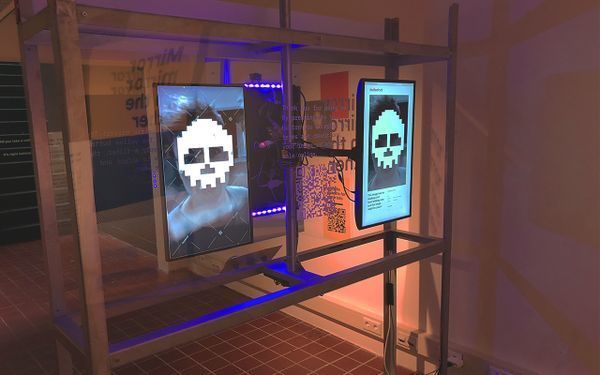Mirror mirror on the ether
Your online profile - a collection of information from all the things you do with an internet connection - is being packaged and sold to the highest bidding advertiser that is looking for a certain pattern of behavior. Once you fit their interest, it's a race against all other advertisers that are interested in the same 'sort of person' as you. It's a bidding competition, with you being the object for auction.
Too few are really aware of what this means and the implications it has. For one, the more personal data can be collected from you, the more value that platform will have to offer to advertisers. Meaning, the more intrusive, the bigger the dollar signs.
Another thing is the growing power advertisers are getting. Aside from the fact that you as a person are being sold online, the way advertisers can specify what 'kind of person' they are looking for is getting more and more personal. So personal in fact, that companies such as Facebook are able to predict possible interests and subconscious desires. With this trend continuing and personal data not getting the protection it deserves, online advertising might soon change to online manipulation.
In order for people to be more aware of how the internet uses you, I built an installation that shows the process of using to being used, in a very short interaction. On the front part of the installation, you can take a selfie, on the back. Well... You'll see that I'm now selling your image.

Links
CONTRIBUTE
Feel free to contribute to Beyond Social.
You don't use the internet, the internet uses you. You're its product.
Lately, personal data has been in the news a lot. A discussion about the safety of our online data and wherever or not countries tried to influence elections filled countless headlines. Although these topics are important, there is an underlying issue that is bearly getting the attention it deserves. And that is the internets most popular business model: Selling people to advertisers.
Your online profile - a collection of information from all the things you do with an internet connection - is being packaged and sold to the highest bidding advertiser that is looking for a certain pattern of behavior. Once you fit their interest, it's a race against all other advertisers that are interested in the same 'sort of person' as you. It's a bidding competition, with you being the object for auction.
Too few are really aware of what this means and the implications it has. For one, the more personal data can be collected from you, the more value that platform will have to offer to advertisers. Meaning, the more intrusive, the bigger the dollar signs.
Another thing is the growing power advertisers are getting. Aside from the fact that you as a person are being sold online, the way advertisers can specify what 'kind of person' they are looking for is getting more and more personal. So personal in fact, that companies such as Facebook are able to predict possible interests and subconscious desires. With this trend continuing and personal data not getting the protection it deserves, online advertising might soon change to online manipulation.
In order for people to be more aware of how the internet uses you, I built an installation that shows the process of using to being used, in a very short interaction. On the front part of the installation, you can take a selfie, on the back. Well... You'll see that I'm now selling your image.











